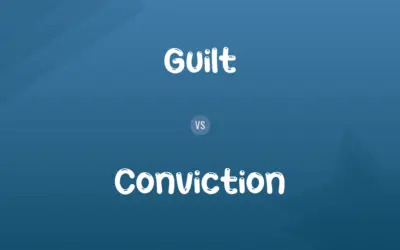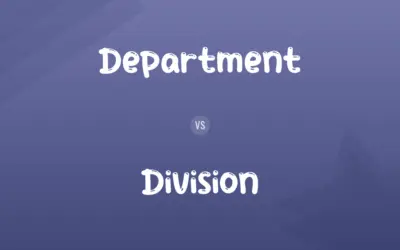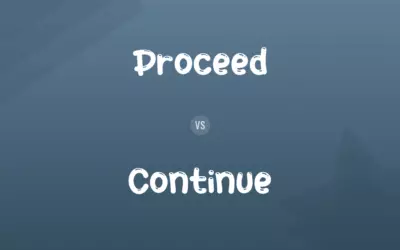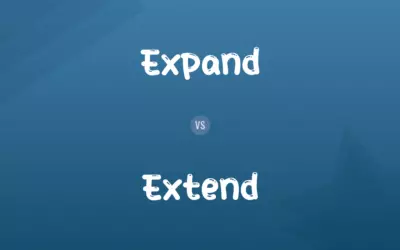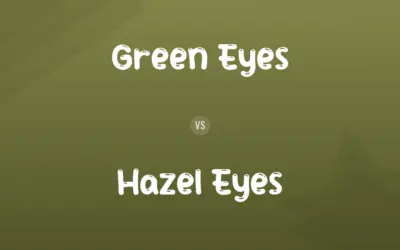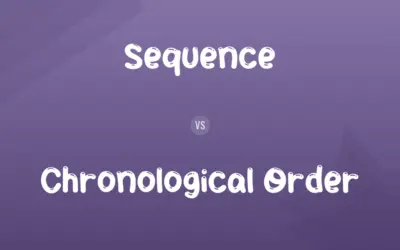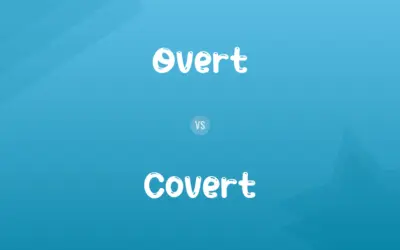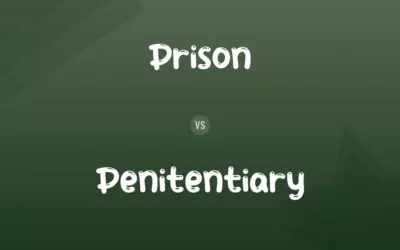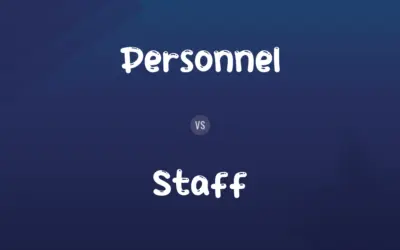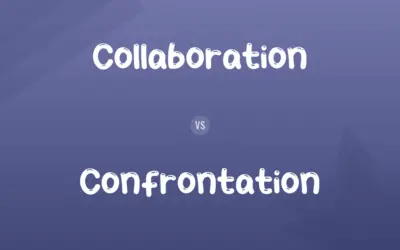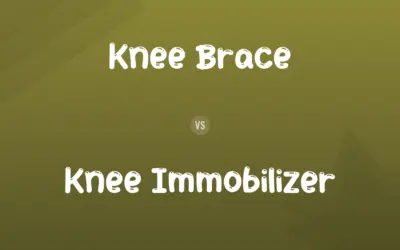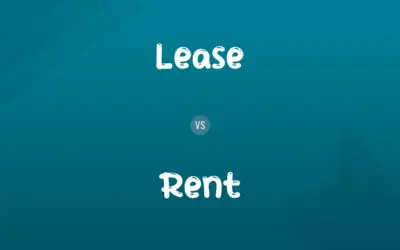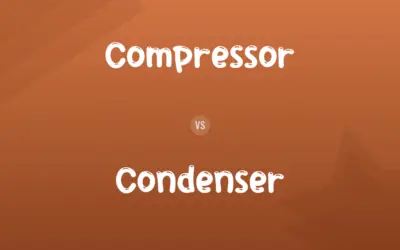Arrest vs. Detain: Difference and Comparison
Edited by Muazma Batool — By Muneeza Rehman — Published on March 21, 2024
Arrest involves taking someone into legal custody for a charge, while detain is a temporary hold for questioning or investigation.
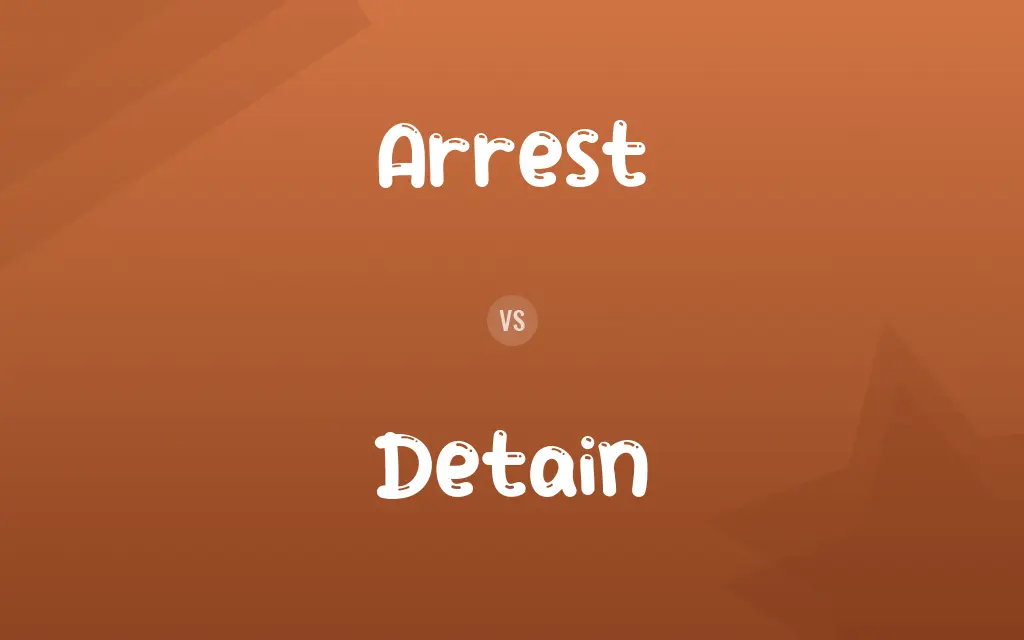
Difference Between Arrest and Detain
Arrest and detain are two terms commonly used in law enforcement to describe different levels of legal restraint. An arrest is a formal process where an individual is taken into custody by law enforcement officials because there is sufficient evidence or suspicion that they have committed a crime. This process usually leads to charges and a possible court appearance. Detainment, on the other hand, refers to the temporary holding of an individual by law enforcement for questioning or investigation purposes, without necessarily charging them with a crime. Detainment can occur to clarify a situation or determine the individual's involvement in a criminal activity.
Muneeza Rehman
Mar 21, 2024
The legal authority behind an arrest typically requires a warrant, except in situations where an officer has probable cause to believe that a crime has been committed. Detainment, however, often relies on reasonable suspicion — a lower standard than probable cause — that the person may be involved in criminal activity. While an arrest record can have long-term legal implications for an individual, being detained does not necessarily lead to a permanent record, assuming no charges are filed.
Muneeza Rehman
Mar 21, 2024
The duration of an arrest can extend until a court deals with the case or bail is posted, depending on the jurisdiction's laws and the severity of the alleged crime. Detainment, in contrast, is generally short-term, often limited by law to a specific period (e.g., 24-48 hours in many jurisdictions) without formal charges being made. After this period, the individual must either be arrested or released.
Muneeza Rehman
Mar 21, 2024
Rights during an arrest and detainment differ significantly; for example, during an arrest, individuals are typically read their Miranda rights in the United States, which include the right to remain silent and the right to an attorney. During detainment, while individuals are not necessarily charged with a crime, they still have rights, such as the right to ask if they are free to leave and the right to remain silent.
Henry
Mar 21, 2024
Both arrest and detainment serve important roles in law enforcement and public safety, allowing officers to intervene in potentially harmful situations, investigate crimes, and protect the community. However, the specifics of these interactions, including the rights of the individual and the obligations of law enforcement, can vary significantly between jurisdictions.
Elijah
Mar 21, 2024
Arrest vs. Detain Comparison Chart
Legal Basis
Requires a warrant or probable cause.
Based on reasonable suspicion.
Muneeza Rehman
Mar 21, 2024
Purpose
To charge with a crime and bring before a court.
For questioning or investigation.
Muneeza Rehman
Mar 21, 2024
Duration
Can last until a court decision or bail.
Typically short-term, with legal limits on duration.
Muneeza Rehman
Mar 21, 2024
Record
Results in a legal record if charged.
Does not necessarily lead to a record unless followed by arrest.
Jonathan
Mar 21, 2024
Rights
Miranda rights (in the U.S.), including right to an attorney.
Right to know if free to leave, right to remain silent.
Levi
Mar 21, 2024
Arrest vs. Detain Definitions
◉Arrest
Criminal Charges.
The person arrested was later charged with burglary and appeared in court.
Muneeza Rehman
Feb 21, 2024
◉Detain
Temporary Hold.
The individual was detained near the crime scene for questioning but released after verifying their alibi.
Muneeza Rehman
Feb 21, 2024
◉Arrest
Probable Cause.
Police arrested the suspect after finding stolen items in their car, establishing probable cause.
Lucas
Feb 21, 2024
◉Detain
Investigation Purpose.
Police detained several witnesses at the mall to gather information about the robbery.
Muneeza Rehman
Feb 21, 2024
◉Arrest
Rights Upon Arrest.
Upon arrest, the suspect was read their Miranda rights, including the right to remain silent.
Jonathan
Feb 21, 2024
◉Detain
No Permanent Record.
After being detained for a few hours and cleared of suspicion, the individual was released without charges.
Muneeza Rehman
Feb 21, 2024
◉Arrest
Legal Custody.
After an arrest for theft, the individual was taken to the police station for booking.
Muneeza Rehman
Feb 21, 2024
◉Detain
Rights During Detainment.
While detained, the individual asked if they were free to leave but were told the investigation was ongoing.
Olivia
Feb 21, 2024
◉Arrest
Court Appearance.
Following the arrest, the accused must appear before a judge for a preliminary hearing.
Leo
Feb 21, 2024
◉Detain
Reasonable Suspicion.
Due to reasonable suspicion, officers detained a person acting suspiciously near a parked car.
Muneeza Rehman
Feb 21, 2024
◉Arrest
To stop; check
A brake that automatically arrests motion.
Arrested the growth of the tumor.
Muneeza Rehman
Feb 20, 2024
◉Detain
To keep from proceeding; delay or retard
Our friends were detained by heavy traffic.
Muneeza Rehman
Feb 20, 2024
◉Detain
To keep in custody or confinement
The police detained several suspects for questioning.
Muneeza Rehman
Feb 20, 2024
Arrest vs. Detain Frequently Asked Questions
What happens after an arrest?
After an arrest, the individual is usually taken into custody, booked, and may be held for a court appearance or released on bail.
Nolan
Mar 21, 2024
Can police detain someone without any evidence?
Police can detain someone based on reasonable suspicion, which is a lower threshold than probable cause and does not require concrete evidence.
Muneeza Rehman
Mar 21, 2024
What constitutes probable cause for an arrest?
Probable cause for an arrest exists when there are reasonable grounds to believe a person has committed a crime, based on factual evidence and circumstances.
Muneeza Rehman
Mar 21, 2024
Can you be detained for no reason?
Law enforcement must have reasonable suspicion of criminal activity to detain someone legally; they cannot detain individuals without any reason.
Jonathan
Mar 21, 2024
What should I do if I believe my rights were violated during an arrest or detainment?
If you believe your rights were violated, it is advisable to remain calm, comply with instructions, and seek legal counsel as soon as possible.
Jonathan
Mar 21, 2024
Do I have the right to remain silent during detainment?
Yes, individuals have the right to remain silent during both detainment and arrest to avoid self-incrimination.
Lucas
Mar 21, 2024
Are there any limitations on what police can do during detainment?
Yes, laws and regulations set limits on police conduct during detainment, including the duration and the treatment of the detained individual.
Lucas
Mar 21, 2024
Is detainment considered an arrest?
No, detainment is not the same as an arrest. It is a temporary hold for investigation, not a formal charge of a crime.
Leo
Mar 21, 2024
How long can law enforcement detain an individual?
The duration varies by jurisdiction but is typically limited to a short period, such as 24-48 hours, without charging the person with a crime.
Muneeza Rehman
Mar 21, 2024
Can detention lead to an arrest?
Yes, if during detainment, sufficient evidence is found, the individual can then be arrested and charged with a crime.
Lucas
Mar 21, 2024
Content Creators
Written by
Muneeza RehmanAt Comparisons.wiki, Muneeza skillfully navigates the vast sea of information, ensuring clarity and accuracy as the lead content editor. With a keen eye for detail, she curates every comparison to enlighten and engage readers.
Edited by
Muazma BatoolAs a content editor, Muazma Batool is not just a grammar guru but a creative mastermind who breathes life into every word. With an eagle eye for detail and a passion for storytelling, she transforms bland text into engaging content that captivates audiences and drives results.


